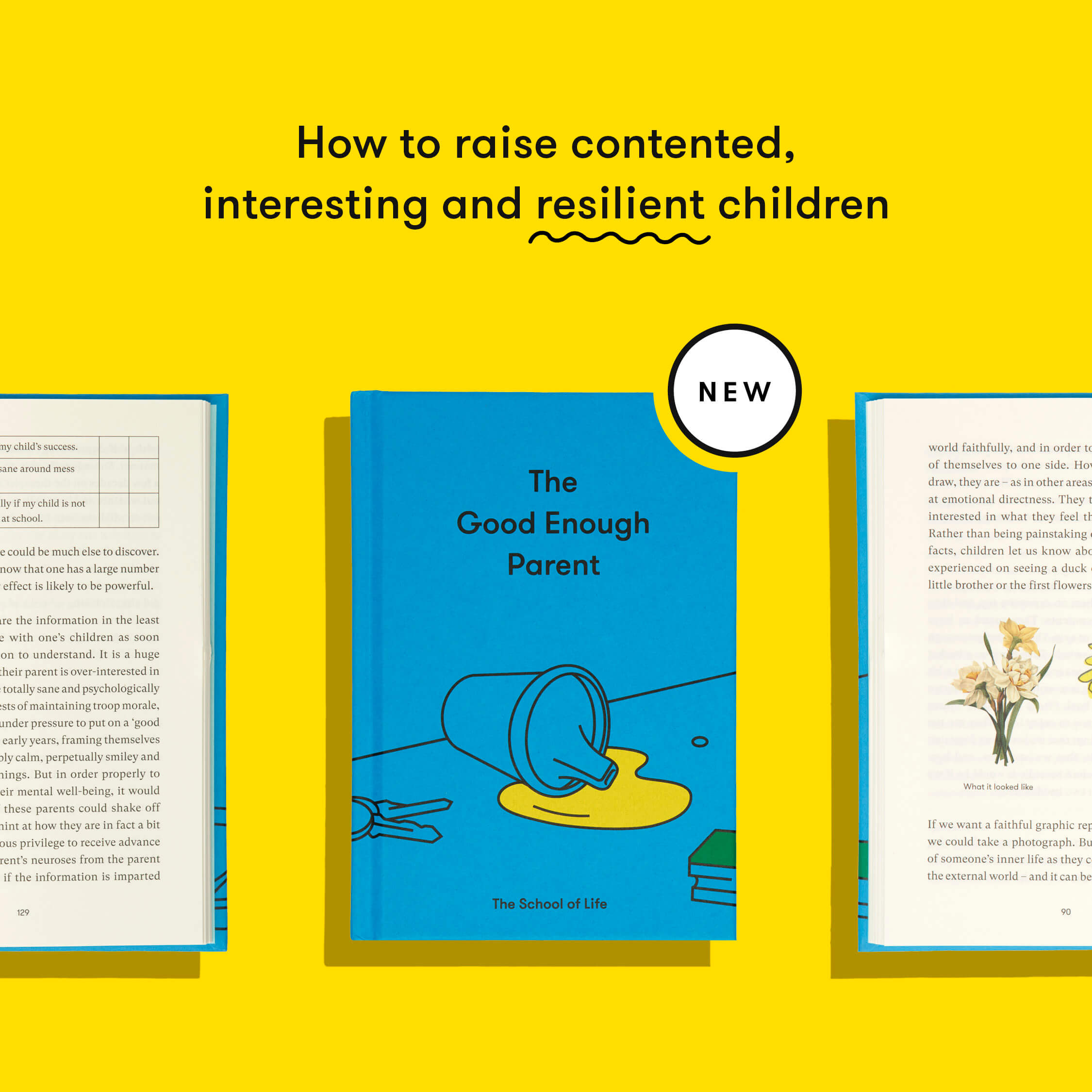Relationships • Parenting
How to Lend a Child Confidence
A near-universal goal of parents is to try to imbue their children with confidence; to try to lend them the energy, self-belief and courage to eventually be able to act decisively in the world. With sufficient confidence, they will know how to go up to strangers and ask for help, push their interests forward at work, articulate their wishes to prospective partners and trust in their decency and right to exist.
But how to imbue this confidence remains a complex matter. The standard approach involves trying to remind children of their qualities: whatever they may sometimes feel, they are clever. Whatever a few mean people might say, they are special. Whatever they may think in front of the mirror, they are beautiful. Whatever they sometimes fear, they are neither idiots nor fools. With such generous sentiments in their ears, children will – we trust – have a chance of confronting challenges without being interrupted by a sense of inadequacy. They will know that despite the difficulties, they are competent and deserving – and that the world should be grateful for their presence.

Although this sounds generous, exulting a child in this way may unwittingly generate whole new levels of doubt. The implication is that grounds for confidence are primarily derived from being clever, talented, beautiful and deserving. Yet by equating confidence with wondrousness, the child is being burdened with a forbidding picture of what is required for success. The bar is unconsciously being set in an elevated position; one is just being assured – slightly unbelievably – that one will clear it.
It might be better to push in a slightly different direction. Sensitive children are in danger of overestimating the adult world and thereby of throttling their talents and sense of initiative out of misfounded respect. It can seem to them as if teachers must know everything, so there is no need to think sceptically about most of what they teach. It can seem as if people at the top of important professions have been endowed with unusual degrees of intelligence, which makes their jobs impossible to get. And in their own peer group, it can look as though the popular and attractive people must have life securely worked out at every level, and could therefore have no need for a new friend or partner.
In this context, it may help a young person to be given access to some apparently dark but in the end liberating truths about the adult world. Despite certain appearances, and a lot of puffery and decorum, human beings are not on the whole an especially clever, competent, knowledgeable or respectable species. Indeed, as a rule, they are properly idiotic and rather damnable. The path to confidence is not to build up a child; it is to knock down society as a whole.
To appease a child’s terror that they might be stupid, rather than telling them that they are brilliant, one should let them know a far more cheering and believable idea: that they have foolish sides, but so has everyone else. They are definitely sometimes idiots, but so is the headmistress, the geography teacher, the president, the finance minister, the Nobel Prize winner, the great novelist, the zoologist, the movie star and all parents who have ever lived. There is no other option for a human being. We are a planet of seven billion idiots. We walk into doors, get things wrong, proffer moronic ideas, spill things down our fronts, forget our own names and ruin our lives – and these aren’t exceptions; they are the general rule. A worry that one might be a bit stupid doesn’t therefore mark one as special or specially damned; it makes one more like every other human in history. It certainly isn’t an argument for not trying to join a team or asking someone on a date, for refusing to apply to a particular university or imagine oneself in a given career.
We should remind children that they know themselves from the inside, but can know others only from the outside – that is, via what these others choose to mention, which results in an unhelpfully limited and edited picture of normality. While they will be aware of every detail of their own inadequacies, there will be little evidence of the inadequacies of others. We should stress to children that beneath serious and self-assured facades, all peers and impressive grownups are sunk in doubt, fear and regret. Wishing to make his readers more confident, the 16th-century philosopher Montaigne wrote: ‘Kings and philosophers shit and so do ladies.’ Shitting was here intended as a representative term, symbolic of all the lower, more embarrassing and weaker dimensions we know about in ourselves but have a hard time remembering exist in others. Montaigne might have added that these august people also tend to worry, feel ugly and say daft things. And not only them, but also presidents, heads of law firms, top footballers and serious-looking teachers.
There is a kind of child who won’t dare to act, thinking that one mistake will place them forever in the camp of the contemptible. One should reassure them that being a fool is not a personal risk; it is a common and inviolable rule. If they took action and ended up doing one more silly thing, it wouldn’t be special grounds for shame; it would merely be confirming what they had understood from the start: that we are all, often in rather endearing ways, error-prone beings. The path to confidence is not to banish fears that one might be silly; it is to not let knowledge of one’s silliness become grounds for a refusal to act. The task is not to tell children that they are amazing; it is to model for them how one might live a decent, self-accepting, humour-filled and confident life knowing one is very imperfect – but, fortunately, so is everyone else.
The Good Enough Parent
New Book Out Now

The Good Enough Parent is a compendium of lessons about how children’s minds operate and what they need from those who look after them so they can develop into the best version of themselves.
Written in a tone that is encouraging, wry and soaked in years of experience, The Good Enough Parent is an intelligent guide to raising a child who will one day look back on their childhood with just the right mixture of gratitude, humour and love.

























